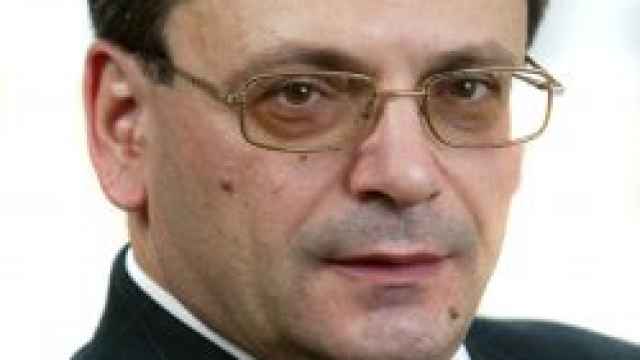
Victoria Kushner
Attorney
Baker & McKenzie, Moscow
The foreign business community in Russia has for years found the migration rules governing foreigners working in Russia to be unduly complicated and bureaucratic, and this has substantially spoiled the investment climate in the country. Now, the time has come when change has become inevitable.
On May 21, 2010, Rossiiskaya Gazeta published Federal Law No. 86-FZ on amending the Federal Law on the Legal Status of Foreign Citizens and other legislative acts of the Russian Federation, dated May 19, 2010. Most of the amendments introduced by this law will come into force on July 1, 2010.
The most important changes made to the Federal Law on the Legal Status of Foreign Citizens (hereinafter — the “Law”) from the viewpoint of most leading foreign businesses acting in Russia are, of course, those that make it easier to hire so-called “highly qualified foreign specialists.”
The Law specifically sets out a new special status of foreign employee: a highly qualified foreign specialist. The main criterion to qualify as a highly qualified foreign specialist is the size of the salary received in Russia, 2 million rubles ($65,000) or more per year. Beyond that, the employers themselves determine the qualification level and assess the competency of foreign specialists.

Yevgeny Reyzman
Counsel
Baker & McKenzie, Moscow
The Law provides a list of the entities that can hire highly qualified foreign specialists. The list includes the following:
• Russian commercial organizations;
• Russian scientific organizations;
• professional education institutions, except for institutions engaged in professional religious education (seminaries);
• health care institutions;
• in cases where state accreditation is required by law — other organizations engaged in scientific, technical and innovative activities, experimental development, testing, training of personnel in accordance with state priorities in developing the scientific and technological base of the Russian Federation;
• branch offices of duly accredited foreign legal entities.
Worthy of mention is the fact that representative offices of foreign legal entities, noncommercial and religious organizations are not included in the list.
For highly qualified foreign specialists, the Law establishes a preferential work permit and work visa regime. For such specialists to obtain work permits, their employers need not:
• obtain a quota for work permits;
• register vacancies with the employment authorities; or
• obtain permission to hire foreigners.
In practice this means that an employer wishing to hire a highly qualified foreign specialist files the required documents directly with the Federal Migration Service.
A work permit for a highly qualified foreign specialist may run for three years, with the possibility of repeated extension for as long as the specialist has a valid employment contract. Such a work permit may be valid for a number of regions of the Russian Federation. Correspondingly, if a work permit is issued that allows one to work in several Russian regions, the existing maximum number of days of business trips inside Russia, at present 10 or 60 days per year depending on the nature of the foreign employee’s work, will not extend to such specialists.
Another important innovation is that a work permit for a highly qualified foreign specialist constitutes the basis for obtaining a permanent Russian residency permit, both for the specialist and for the members of his or her family. Moreover, a residency permit must be issued by the authorities if requested by the specialist, that is, he or she may not be refused one.
Alongside the privileges introduced, the Law establishes conditions for employers hiring such specialists. For instance, the employer must not have been penalized for illegally hiring foreign citizens in the last two years. Employers must also provide the Federal Migration Service with confirmation that the highly qualified foreign specialist has been registered with the tax authorities within 30 days of obtaining a work permit, and also (on a quarterly basis) that salary payments have been made to such a specialist. The Federal Migration Service must also be informed if employment and civil law contracts with the specialist have been terminated or if he or she has been provided with long-term unpaid leave. Furthermore, if an employer is guilty of not fulfilling its obligations under a contract with a highly qualified foreign specialist, that employer would be unable to engage highly qualified foreign specialists for two years. Thus, employers will need to closely examine the existing contracts with such specialists.
The changes reinforce the existing rules on the list of non-quota professions and positions. This list has now become permanent, although the regulatory authorities may amend it from time to time giving several months’ notice.
Accredited employees of representative offices of foreign legal entities have been added to the list of cases where foreigners can be employed without a permit to hire foreigners or a work permit. However, this will be possible only on the basis of reciprocity in accordance with international treaties to which Russia is party. At present Russia has very few such bilateral agreements, so the exception for “accredited” employees is unlikely to be broadly applied in practice.
Of course, the new law has not satisfied all the hopes of major international corporations doing business in Russia. The “fate” of accredited representative offices of foreign companies remains unclear. Many observers suggested completely freeing such representations from the need to obtain work permits in a return to the situation in the past before work permit regulation. However, Russia’s diplomats insisted on the principle of reciprocity. It remains only to hope that Russia will find common ground in this area, at least with the most developed countries of the world.
Though the term of validity for a work permit for a highly qualified specialist has been increased to three years, such a permit does not yet cover the entire Russian Federation. However, it will become significantly easier to obtain one for several regions. The amendments simplify, but do not remove, the requirements on registration for migration monitoring purposes, and this remains quite burdensome.
Nonetheless, the amendments to the Law promise to significantly ease the lives of those employers employing highly qualified specialists. One very much hopes that this represents the first large step taken toward turning Russia into a country with a stable and hospitable climate for long-term investments.
A Message from The Moscow Times:
Dear readers,
We are facing unprecedented challenges. Russia's Prosecutor General's Office has designated The Moscow Times as an "undesirable" organization, criminalizing our work and putting our staff at risk of prosecution. This follows our earlier unjust labeling as a "foreign agent."
These actions are direct attempts to silence independent journalism in Russia. The authorities claim our work "discredits the decisions of the Russian leadership." We see things differently: we strive to provide accurate, unbiased reporting on Russia.
We, the journalists of The Moscow Times, refuse to be silenced. But to continue our work, we need your help.
Your support, no matter how small, makes a world of difference. If you can, please support us monthly starting from just $2. It's quick to set up, and every contribution makes a significant impact.
By supporting The Moscow Times, you're defending open, independent journalism in the face of repression. Thank you for standing with us.
Remind me later.

